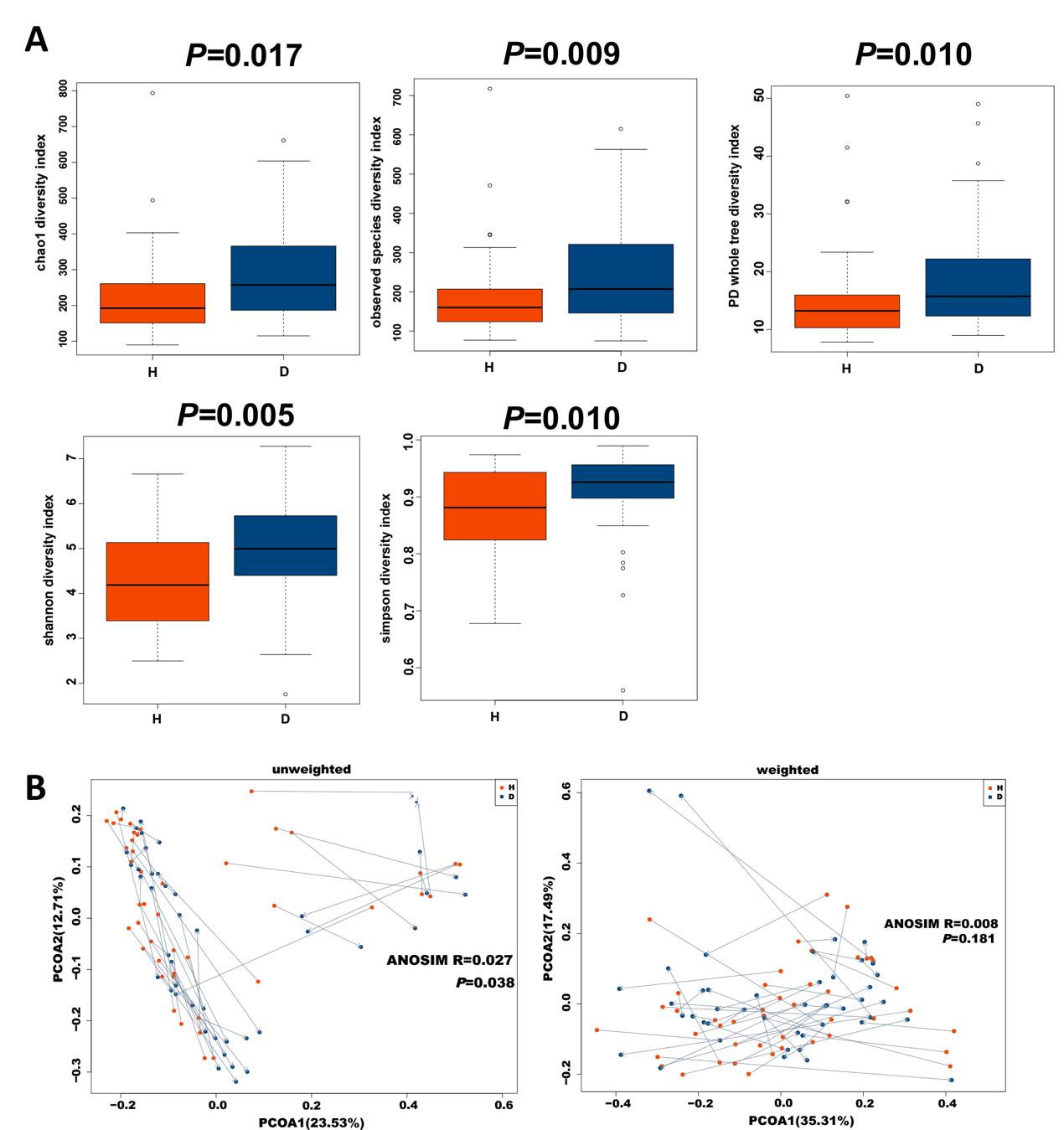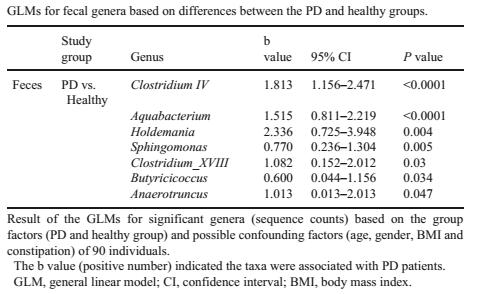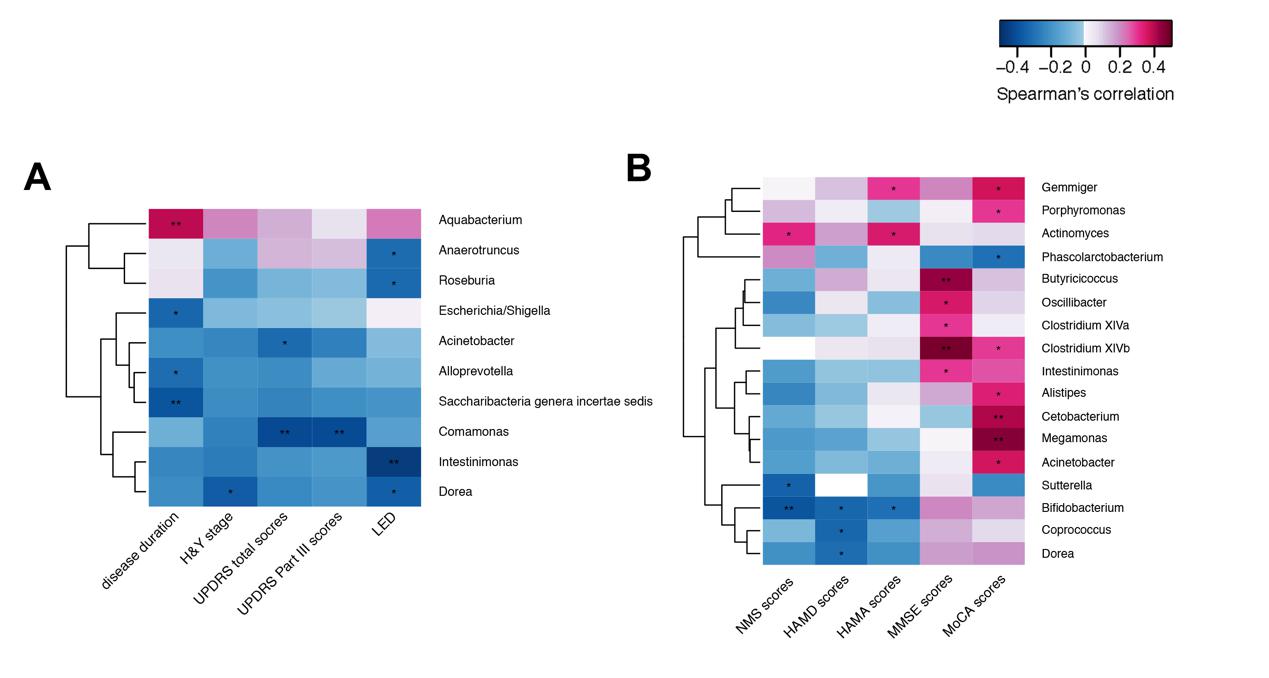Session Information
Date: Monday, October 8, 2018
Session Title: Parkinson's Disease: Pathophysiology
Session Time: 1:15pm-2:45pm
Location: Hall 3FG
Objective: Emerging evidences suggest that gut microbiota dysbiosis plays a role in Parkinson’s disease (PD). However, the alterations in fecal microbiome in Chinese PD patients remains unknown. This case-control study was conducted to explore fecal microbiota compositions in Chinese PD patients.
Background: Parkinson’s disease (PD) is a progressive neurodegenerative disorder characterized by motor and non-motor symptoms that currently affects approximately 1.7% of people over 65 years of age in China. Emerging studies from North America and Europe using 16S ribosomal RNA (rRNA) gene sequencing have shown that patients with PD exhibit gut microbiota dysbiosis during the past three years. However, there are clearly major differences in the bacterial profiles of gut dysbiosis that have been reported to be associated with PD in different world populations. Increasing evidence indicates that the key factor in determining gut microbiota composition is diet, the spouses of PD patients could serve as controls to minimize variation caused by diets.
Methods: Microbiota communities in the feces of 45 patients and their healthy spouses were investigated using high-throughput Illumina Miseq sequencing targeting the V3-V4 region of 16S ribosomal RNA (rRNA) gene. The relationships between fecal microbiota and PD clinical characteristics were analyzed.
Results: The structure and richness of the fecal microbiota differed between PD patients and healthy controls [figure 1]. Genera Clostridium IV, Aquabacterium, Holdemania, Sphingomonas, Clostridium XVIII, Butyricicoccus and Anaerotruncus were enriched in the feces of PD patients after adjusting for age, gender, body mass index (BMI), and constipation [table 1]. Furthermore, genera Escherichia/Shigella were negatively associated with disease duration. Genera Dorea and Phascolarctobacterium were negatively associated with Levodopa equivalent doses (LED). Among the non-motor symptoms (NMSs), genera Butyricicoccus and Clostridium XlVb were associated with cognitive impairment [figure 2].
Conclusions: Overall, we confirmed that gut microbiota dysbiosis occurs in Chinese patients with PD. The fecal microbiota was closely related to PD clinical characteristics.
References: 1. Yiwei Qian#, Xiaodong Yang#, Shaoqing Xu, Chunyan Wu, Yanyan Song, Nan Qin*, Shengdi Chen*, Qin Xiao*, Alteration of the fecal microbiota in Chinese patients with Parkinson’s disease, Brain Behav Immun, 2018, doi: 10.1016/j.bbi.2018.02.016.
To cite this abstract in AMA style:
Y. Xiaodong, Q. Yiwei, X. Shaoqing, C. Shengdi, X. Qin. Alteration of the fecal microbiota in Chinese patients with Parkinson’s disease [abstract]. Mov Disord. 2018; 33 (suppl 2). https://www.mdsabstracts.org/abstract/alteration-of-the-fecal-microbiota-in-chinese-patients-with-parkinsons-disease/. Accessed December 14, 2025.« Back to 2018 International Congress
MDS Abstracts - https://www.mdsabstracts.org/abstract/alteration-of-the-fecal-microbiota-in-chinese-patients-with-parkinsons-disease/



